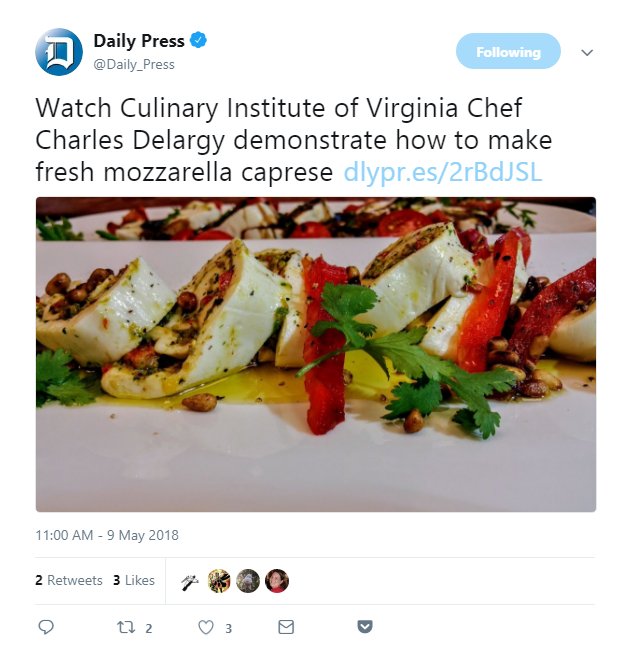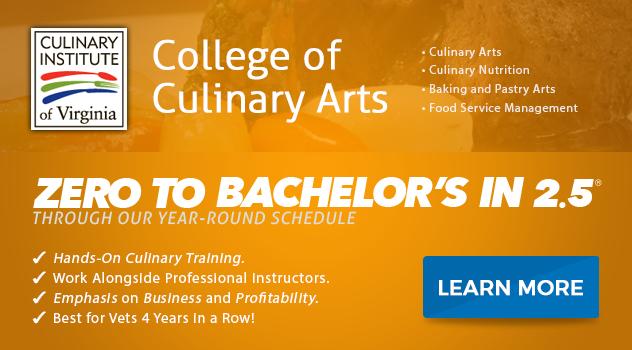Why Would a Chef Need to Follow a Chronology?
One of the most important things you can do as you study toward a culinary arts degree is to build your resume. A resume, written effectively, is a way to market yourself. It reflects you as you build your own personal brand by chronicling your progress as a chef.
Some recent graduates find resume creation intimidating and consult professional resume writers for help. There's nothing wrong with hiring a professional, but it can be rather expensive. If you've got reasonable writing and communications skills, you should have a go at creating your resume yourself. Your college instructors may be willing to read it and offer suggestions for improvement.
Is it too early to get started on a resume if you're just planning to enroll or are already enrolled in culinary arts school? Maybe not. As soon as you begin learning how to prepare dishes and make presentations, you may want to start taking notes for what's called a chronology.
What is a Chronology?
There are several different types of resumes. No one type is the "right" one, but one that offers a chronological timeline of experience is usually the preferred.
Chronology means quite simply a timeline of events. In the case of your resume, that will be a timeline of your education, since you will be, are, or were recently a student, and any experience you may have to date.
Potential employers often prefer a chronological resume, because they can skim through it quickly and get a feel for how qualified a candidate is for the job. In the case of any entry-level employee such as you are likely to be, they can easily determine if your experience and education are a good match for the job you've applied for.
What to Include in a Chronology
To start your resume, list your personal details -- name, address, phone number, email address, or any other relevant contact information.
Sometimes resume writers like to follow the personal details with a stated objective, such as, "My career objective is to work as a chef in a [restaurant, hospital, resort, or wherever], gaining experience in culinary arts and working my way up to executive chef." This is usually optional, so if you're not ready to state your objective, leave it out.
To start your chronology, list your work history, if any, in order. Start with your most recent position, and then work backwards. You will want to list the name of the employer, the dates you worked there (from start to finish), and your duties. You may also want to give the name of your manager or supervisor. Be sure to highlight any experience that might be relevant to the job you are seeking.
Even if it wasn't a culinary job, you may be able to glean experience that is relevant to the culinary arts field. Perhaps you just cleaned tables or washed dishes in a restaurant; it's fine to highlight that experience in a way that emphasizes your familiarity with a restaurant or kitchen.
Follow the chronology with a timeline regarding your education. If you are young and have little other education, you may want to include that you are a high school graduate or have a GED. If you are enrolled in college, you will include where you attend classes, what you are studying, projected date of graduation and degree, as well as any relevant experience or activities you are involved in that might enhance your chances of being hired.
Some Pointers
- Write in a succinct, to-the-point style. Your potential employer will be skimming so don't bog the reader down in a dense narrative. A resume should highlight your work history.
- Be mindful if you've worked several jobs, jumping around after a few months here and there, possibly suggesting instability. If this is all the work history you have, explain your reasons for leaving jobs -- briefly, but honestly and to the point.
- If you are a potential student, current student, or recent graduate, be careful about highlighting your lack of experience. Emphasize your current or soon-to-be enrollment in a culinary arts program. Being enrolled in a program can sometimes be the edge you need to get your foot in the door so you can start building up your experience.
- Use keywords. Keywords relevant to the culinary arts profession will help recruiters find you online. Keywords enhance search engine optimization, or SEO, and make it easier for robots to find you in an online search.
Are You Ready to Start Your Culinary Career?
A well-crafted resume can be one of the most important determinants in obtaining a job interview for a chef's position, once you complete your culinary arts degree. If you want to earn an Associate of Applied Science in Culinary Arts, ECPI University's Culinary Institute of Virginia offers this degree at an accelerated rate. For more information about this dynamic program, connect with a friendly admissions advisor today.
It could be the Best Decision You Ever Make!
DISCLAIMER – ECPI University makes no claim, warranty, or guarantee as to actual employability or earning potential to current, past or future students or graduates of any educational program we offer. The ECPI University website is published for informational purposes only. Every effort is made to ensure the accuracy of information contained on the ECPI.edu domain; however, no warranty of accuracy is made. No contractual rights, either expressed or implied, are created by its content.
Gainful Employment Information – Culinary Arts - Associate’s
For more information about ECPI University or any of our programs click here: http://www.ecpi.edu/ or http://ow.ly/Ca1ya.





